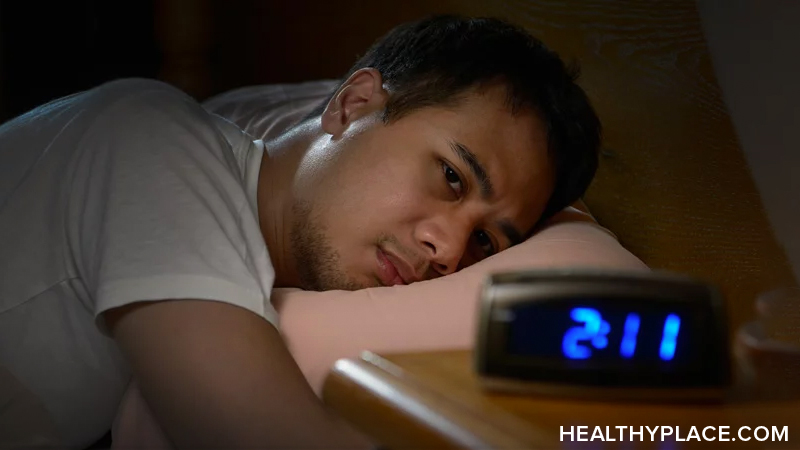What Are the Side Effects of Depression?

While each person experiences depression differently, there are side effects of depression that affects everyone with this illness to some degree. Perhaps the word that encompasses all depression side effects is “suffering.” This mental disorder causes deep misery and suffering because it affects someone’s whole being—mind and body.
Depression’s side effects can range from mild to severe. Mild effects can prevent people from living life the way they want to and probably used to be able to. On the severe end of the spectrum is self-destructive behavior like substance use, self-harm and suicide. For life and wellbeing, it’s crucial to know the side effects of depression so you can recognize them and diminish them.
Depression Side Effects in the Brain
Depression alters brain functioning. There’s a change in the production and behavior of hormones and neurotransmitters that lead to difficulties. If you live with depression, you might experience brain-based depression side-effects such as
- Negative emotions like sadness, guilt, hopelessness, emptiness, and loneliness whether you’re alone or with people
- Cognitive struggles like concentration problems, difficulty with decision-making, memory deficits, language processing difficulties, organizing, planning, and psychological flexibility
- Sleep problems like insomnia or sleeping too much
- Working memory issues, which can include recalling details, thanks to a diminishing hippocampus
These depression side effects cause hardship for people. Unfortunately, brain-based side effects aren’t the only thing people living with depression deal with. Depression is also very much a part of the body.
Depression Side Effects in the Body
Depression is as much physical as it is mental. Depression can cause headaches and discomfort throughout the body. An annoying side effect of depression is that these aches and pains often don’t respond to medication, thus becoming bothersome day in and day out.
Depression can have negative consequences in several different body systems. The digestive, immune, and cardiovascular systems are particularly susceptible to depression.
Digestive problems include stomachaches, nausea, cramping, constipation, and diarrhea. Also, unintended weight gain or weight loss is common, too. Further, there’s a direct highway between the brain and the gut (officially known as the gut-brain axis); many hormones and neurotransmitters travel between the gut and brain—including serotonin, one of the neurotransmitters implicated in depression. Serotonin is produced by both the brain and the gut, something that researchers are currently studying in order to further our understanding of depression and how to treat it.
The Immune system can be damaged by depression. People with depression tend to come down with more colds and flus, and these illnesses typically last longer in those with depression, too. When the immune system is weakened by a chronic condition like depression, people can be prone to more serious, long-term illnesses.
Cardiovascular disease is also linked to depression. One depression side effect related to hormonal changes or imbalances is constricted blood vessels, a big contributor to cardiovascular disease. This can increase someone’s chances of having a heart attack or stroke. It’s been discovered that in addition to this risk, cardiovascular patients with depression have a higher death rate after a heart attack or stroke than those who don’t have depression. Ongoing cardiovascular problems are more common in people with depression than in people who smoke, have high blood pressure, high cholesterol, or diabetes (Pietrangelo & Cherney, 2017).
The mind and body are intricately connected. Together, they affect behavior.
Behavioral Side Effects of Depression
Depression affects how we think, the way we feel, and what we do. Some ways in which depression affects behavior include:
- an increased chance of substance use and addiction
- acting differently in relationships in a way that is damaging to those relationships
- decreased sex
- withdrawal and isolation
- inability to work effectively (or even at all), sometimes leading to disability (See also: How Do I Use the FMLA as an Employee with Depression?, Is Depression a Disability? Can You Get Accommodations?)
In severe cases, depression’s effects are life-threatening. Extreme depression can lead people to harm themselves; self-injurious behavior can be incredibly dangerous and lead to hospitalization for wounds, illness or infection, and even death. Suicide is a tragic possible outcome of depression as well. According to WebMD (2015), the majority of people who have depression do not attempt suicide; however, of those who die by suicide, over 90 percent were living with depression or another mental illness.
If you are preoccupied with thoughts of death and/or have suicidal thoughts, please contact the National Suicide Prevention Lifeline at 1-800-273-8255 or https://suicidepreventionlifeline.org/. You can use other hotline services as well.
The very good news is that the side effects of depression don’t have to be permanent. Treatment is available. Talk therapy, depression medication, and support systems are available so you can conquer depression and its effects.
APA Reference
Peterson, T.
(2022, January 3). What Are the Side Effects of Depression?, HealthyPlace. Retrieved
on 2025, April 21 from https://www.healthyplace.com/depression/effects/what-are-the-side-effects-of-depression



